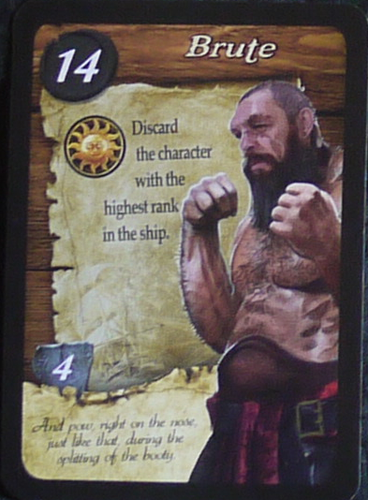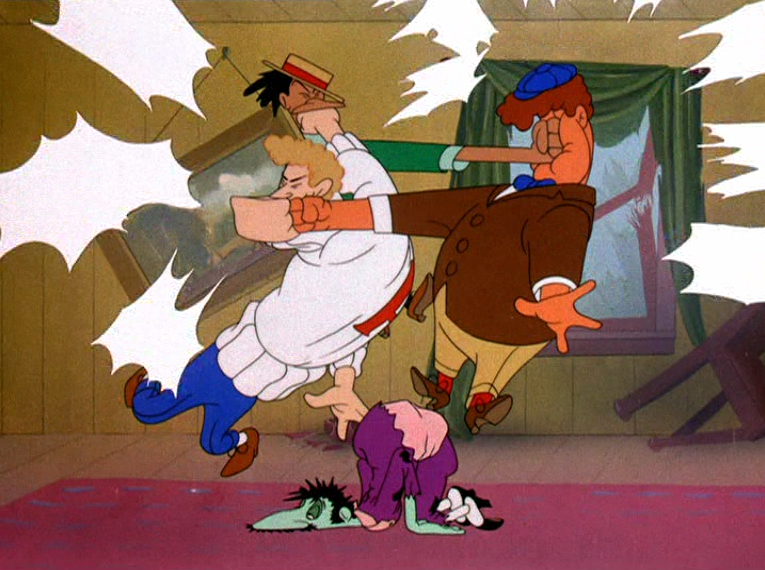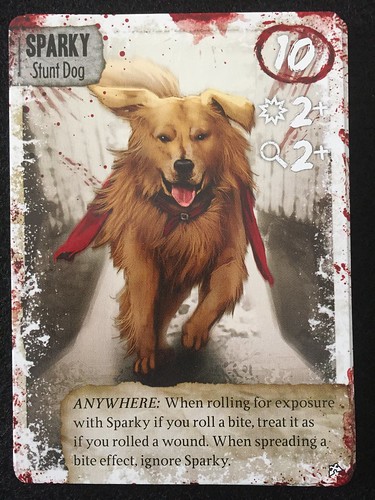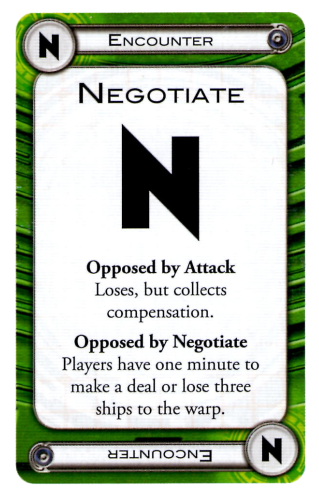It’s the little things that make a difference.
The beauty of a game’s design can sometimes be condensed into something as small as a single card, a tiny packet of information that revolutionizes the way it – and games in general – are played.
In tribute to Mike Selinker’s blog The Most Beautiful Things, I am writing a series about the most beautiful cards in tabletop games. Here’s the first installment, with three cards that made an outsized difference in the games they represent.
Libertalia: Brute

The mechanic at the heart of Libertalia– that everyone gets the same randomized hand of pirates – is genius and elegant, and would stand alone as a brilliant design innovation no matter what pirate cards it ended up using. But without the Brute, Libertaliawould be a lot more easy to parse, and a lot more polite.
Most of the other player-versus-player interaction in Libertalia is various shades of passive-aggressive. The Beggar steals money from the person with the highest-ranked pirate, the Monkey dumps cursed Incan gold on the player to your left, Granny Wata cancels other Grannies Wata, etc. Not the Brute. When you play the Brute, you are actively choosing to punch another player in the face.
The best part about the Brute is that it’s a fairly low number in the booty-acquiring order and does nothing else of value. So you only play it when you really feel like saying “screw you” to whomever you suspect is going to be greedy and go for the treasure.
No, wait, the best part about the Brute is when multiple players play them at the same time and it looks like this:

Wait, wait, wait, the best part about the Brute is guessing when your opponents are playing theirs and playing a low card to counter it – or better yet, a Parrot so you can play the exact right card to get first pick of the treasure without getting punched overboard.
Hold on, the bestpart about the Brute is holding onto yours for two rounds, until everyone’s forgotten that there’s a Brute left in play, until you punch out the opponent’s Captain they were relying on to win the game and smugly help yourself to a 1-point barrel.
I could probably find more things that are the best about the Brute, they just never stop! A cracking good card.
Dead of Winter: Sparky the Stunt Dog

Dead of Winter is a grim co-op game about the last vestiges of humanity desperately clinging to life as they’re threatened by both the walking dead and the bitter cold. If Plaid Hat had thrown it out there without any levity to it, the experience would be so heavy and personal that only the hardiest players could stomach multiple plays. But varying the tone on the “crossroads” cards could backfire, creating goofy moments when they aren’t called for.
But what if all of the crossroads cards could be goofy in the right context? Here to the rescue is Sparky the Stunt Dog.
Sparky questions the unspoken assumption of crossroads cards: That they are all performed by humans. Sparky erects a barricade against the walking dead! Sparky researches the undead plague! Sparky plays some Johnny Cash on the guitar! Good dog, Sparky!!!
Through just one card, the tone of the game can dramatically shift. And the brilliant thing is, for those groups who want a consistent tone, it’s as easy as putting Sparky back in the box during setup.
Cosmic Encounter: Negotiate

Brute and Sparky are cards that elevate their respective games from “decent” to “great”, but the humble Negotiate card is what changed Cosmic Encounter from a run-of-the-mill space combat game into one of the most influential – and most impactful – games of all time.
The Negotiate card does several vital things. First, it increases the variance of each player’s hand strength in combat. This seems like a bad thing off the cuff, as more variance means more instances where player skill can’t affect the outcome of a round, but Cosmic’s strength is, as described by the box, that it’s a game of infinite possibilities. It’s the times when you have a grip of 5 Negotiates that make you appreciate the times you have three double-digit Attacks.
Second, it provides an element of player interaction that goes beyond “shoot each other with pew pew guns”. Cosmic’s emphasis on alliances, going so far as to allow multiple players to win the game at the same time, is enhanced by the ability to create mutually beneficial deals.
Finally, and most importantly, it creates gameplay that isn’t strictly fettered by rules. What players do or say during negotiations is pretty much anything goes – for example, you can claim you have an attack 40, offer to trade it, then grimace and decide against it when you really never had an attack 40 in the first place.